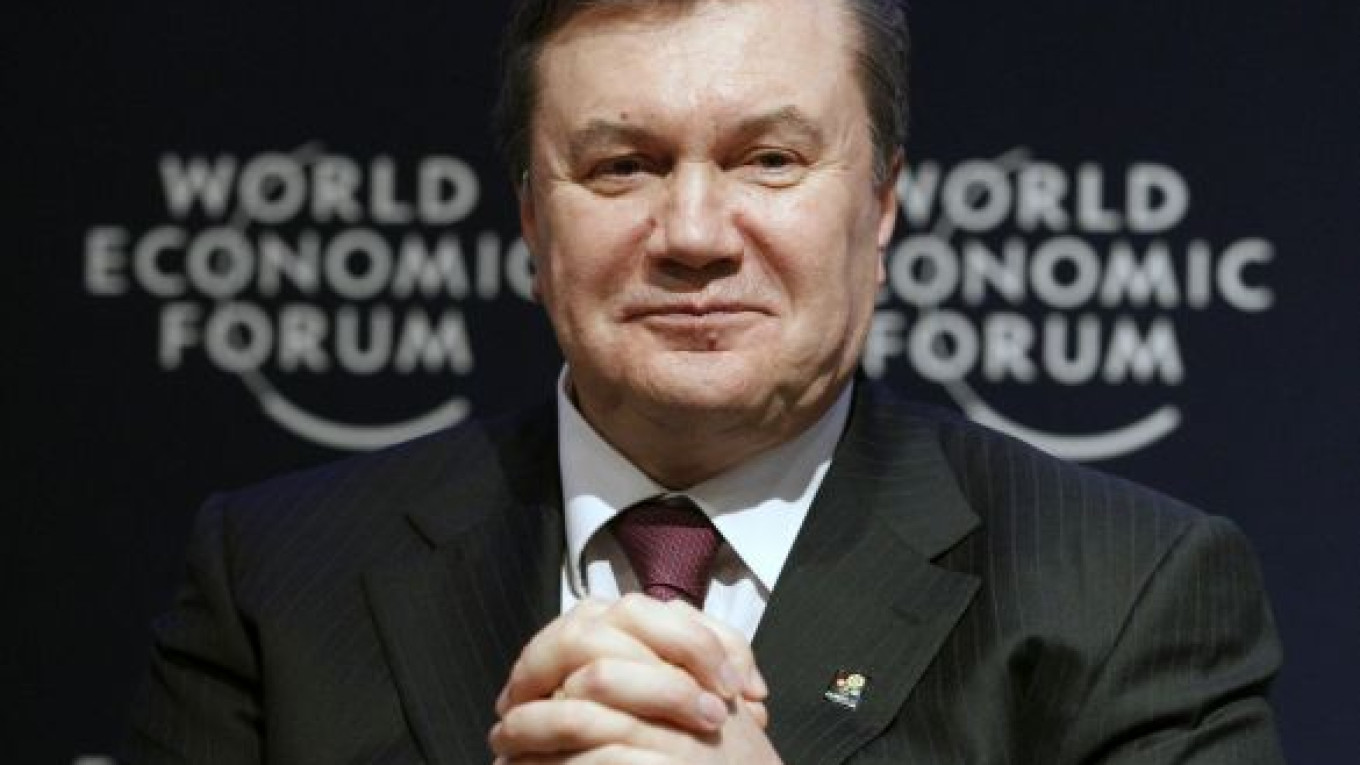DAVOS, Switzerland — Ukraine's president clinched energy pacts with Azerbaijan on Friday and attacked Russian plans to bypass his country in supplying gas to Europe, reviving market fears of regular spats between Moscow and Kiev.
Markets were relieved when Viktor Yanukovych, perceived as friendlier to the Kremlin than his predecessor Viktor Yushchenko, was elected Ukraine's president last year.
But Yanukovych has played a much less pro-Moscow role than expected since taking office, saying the European Union was an equal or even more important partner.
Speaking at the World Economic Forum in Davos, Yanukovych said Ukraine shared Poland's concerns about political motives behind the Nord Stream pipeline to supply Russian gas to Western Europe along the Baltic Sea floor, bypassing Central European nations.
"Another project being discussed today between Russia and Europe is the construction of South Stream. This possibility is directly related to Ukraine, and here I share the position of Poland," he said, referring to a project to pipe gas under the Black Sea to Southern Europe.
Russia ships about 80 percent of its gas exports to Europe through Ukraine now and the remaining 20 percent via Belarus. It says it needs the new projects to boost Europe's energy security after disruptions in previous years.
Yanukovych said South Stream would cost $25 billion, while it would cost much less to upgrade Ukraine's pipeline system.
"Why are our partners today pretending that there is no alternative? A year ago we proposed a project that would cost … not more than $5 billion, it would come to the same destination points to which South Stream would go," Yanukovych said. "If this is a way to exert pressure … serious questions arise about how we should build our relations."
Yanukovych used the Davos platform to sign a deal with Azeri President Ilham Aliyev to import liquefied natural gas to a planned Ukrainian terminal aimed at reducing the country's heavy dependence on Russian gas.
The memorandum did not specify volumes for the terminal, to be opened in 2015. He also signed a memorandum on cooperation in shipping Azeri oil across Ukraine.
Yanukovych said Ukraine would ship the first million tons of Caspian Sea oil to Europe via the pipeline this year, thus ending its use to export Russian crude to the Mediterranean.
"The Odessa-Brody pipeline has been used in various directions. Very soon we will start working according to the original idea, delivering oil from Odessa to European countries," he said.
Interfax news agency quoted Ukrainian officials as saying the deal covered deliveries of up to 4 million tons a year.
Aliyev, who spoke at the same panel, said he was under no pressure from Russia to shun the Nabucco pipeline, seen as a key European Union attempt to reduce reliance on Russian gas.
A Message from The Moscow Times:
Dear readers,
We are facing unprecedented challenges. Russia's Prosecutor General's Office has designated The Moscow Times as an "undesirable" organization, criminalizing our work and putting our staff at risk of prosecution. This follows our earlier unjust labeling as a "foreign agent."
These actions are direct attempts to silence independent journalism in Russia. The authorities claim our work "discredits the decisions of the Russian leadership." We see things differently: we strive to provide accurate, unbiased reporting on Russia.
We, the journalists of The Moscow Times, refuse to be silenced. But to continue our work, we need your help.
Your support, no matter how small, makes a world of difference. If you can, please support us monthly starting from just $2. It's quick to set up, and every contribution makes a significant impact.
By supporting The Moscow Times, you're defending open, independent journalism in the face of repression. Thank you for standing with us.
Remind me later.


